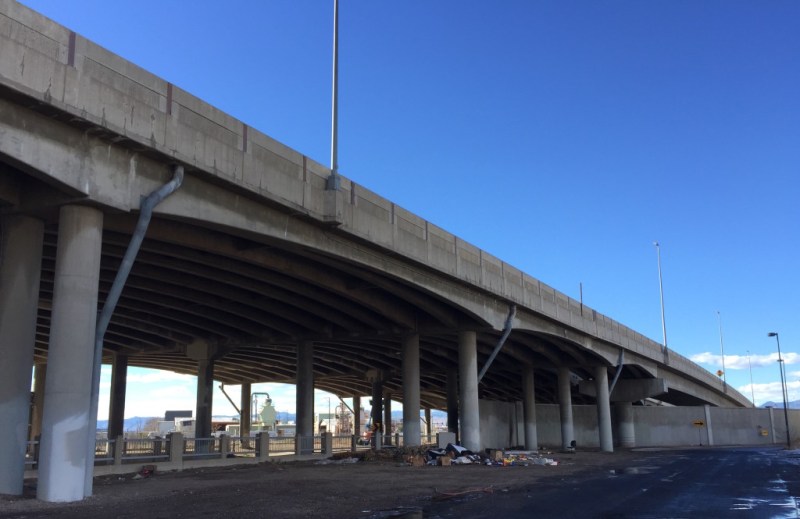Community Groups File Civil Rights Complaint Against CDOT’s I-70 Widening

Governor John Hickenlooper’s transportation department wants to triple the width of a highway that has divided the neighborhoods of Globeville, Elyria, and Swansea since the 1960s. If you follow Streetsblog Denver, you know the $1.7 billion widening is shortsighted, physically unhealthy, and fiscally irresponsible. It might also be illegal.
The people who live near the highway are mostly low-income and mostly Latino. That’s why the Elyria and Swansea Neighborhood Association, the Colorado Latino Forum, and the Cross Community Coalition filed a complaint with the U.S. Department of Transportation earlier this month [PDF]. It asks the feds to investigate whether Colorado DOT is violating the Civil Rights Act.
“CDOT is a recipient of federal funds and prohibited from taking actions that have a discriminatory impact on citizens on the basis of their race, color, and national origin,” the complaint states. “The current effort to address I-70’s use and contribution to area transportation needs should not further the wrongs of the initial decision and the decades of significant adverse impacts in these neighborhoods.”
About 84 percent of residents of Elyria, Swansea, and Globeville are Latino — with many families going back generations. Advocates said they want U.S. DOT to act fast, before the Trump administration takes over.
“We are asking the U.S. Department of Transportation to recognize and remedy the heavy cost that these communities have paid in reduced life expectancy, illnesses like childhood asthma and cardiovascular disease, and depressed property values,” said Heidi McIntosh, an attorney with Earthjustice, which is representing the coalition. “These communities have suffered unfairly from the burdens imposed by I-70 in their backyard.”
The Civil Rights complaint is the latest front in the fight against a 20th-century zombie project.
The Sierra Club filed a separate suit in March on environmental grounds, which likely delayed the feds’ final decision on the expansion. Then there’s the opponents of the “Platte to Park Hill” drainage project, which is intertwined with the 40-foot I-70 trench CDOT wants to dig. They’re organized, and they’re getting louder. Denverite’s Andrew Kenney gave a detailed update on the controversy earlier this week.
As Streetsblog reported last year, highway expansionists from CDOT and Denver forced through the I-70 and the flood project by signing an intergovernmental agreement that committed Denverites to help pay for I-70 in exchange for flood protection. Fast forward to this month, when advocates presented scrolls of signatures from a petition that asks Hancock to stop the project:
The movement against a harmful highway project is not sponsored by heavy hitters with a financial stake in the outcome. These are grassroots campaigns sparked by outrage over social and environmental injustice and a mammoth waste of taxpayer dollars. The more fronts advocates fight on, the better chance of stopping this boondoggle.


